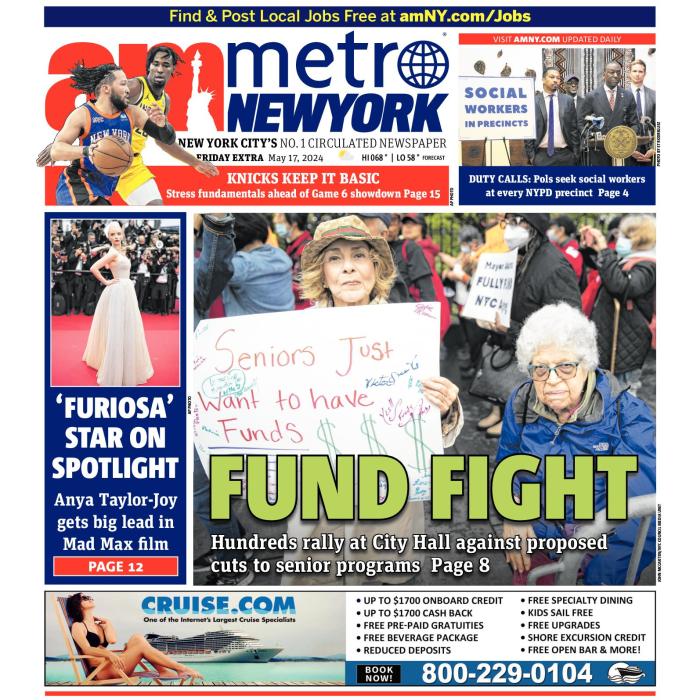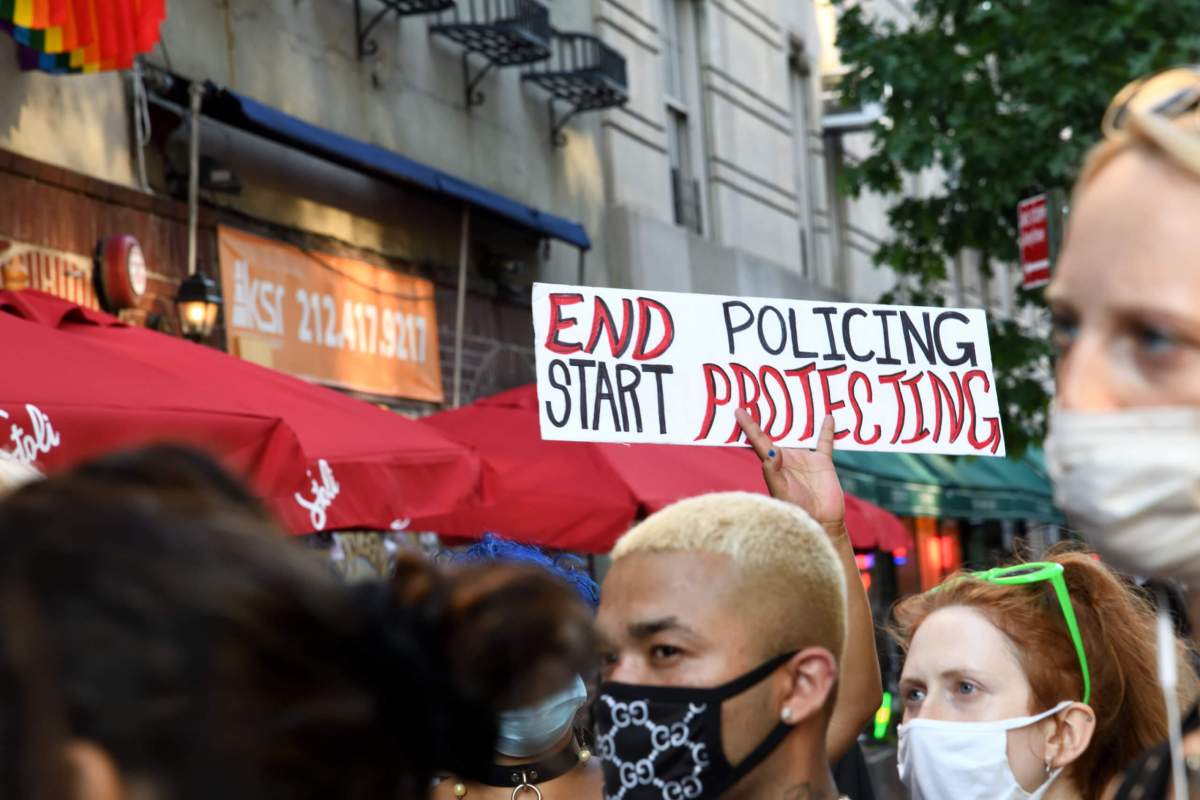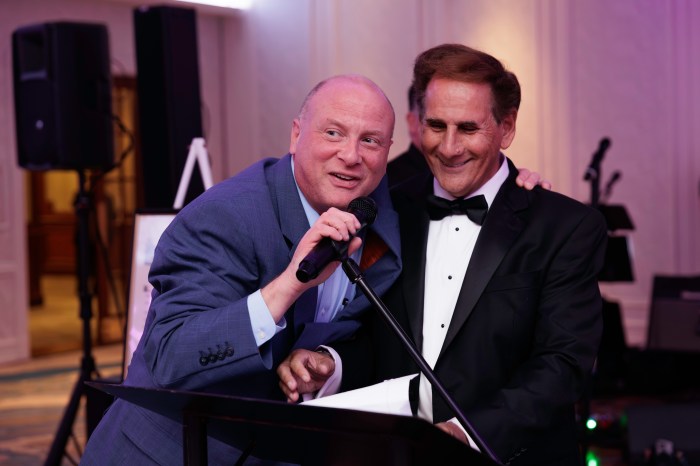
If the ticket-vendor-licensing bill passes, hawking tickets near subway entrances would be illegal.
BY COLIN MIXSON
City legislators are gearing up to crack down on the largely unregulated ticket vendors swarming Lower Manhattan, introducing a new bill that would require the hawkers to get a license from the Department of Consumer Affairs and restrict where they can operate.
The legislation comes after a string of incidents involving ticket sellers, ranging from assaulting tourists and battling each other for turf, to selling pricey tickets to the Staten Island Ferry — which is free.
Downtown Councilwoman Margaret Chin, who was among the first to co-sponsor the measure is optimistic the bill will force the vendors to clean up their act.
“Residents of Lower Manhattan know all too well the threatening tactics employed by ticket sellers who negatively impact the quality of life of residents and actively prey on visitors to our City,” said Chin. “I look forward to the day that our historic sites and other places of interest will again be comfortable and inviting spaces for residents, workers, and tourists alike.”
The bill, which was introduced by Councilman Daniel Garodnick on Apr. 7, would require a license for any vendor selling tickets for tours, transit, or entertainment venues throughout the city, who operates in public space, such as sidewalks.
The licenses, which would have to be renewed annually for a $125 fee, could be revoked by the Department of Consumer Affairs for violating any of a long list of rules against unsavory tactics, including fraud and aggressive sales pitches.
Vendors would also be required to wear the license at all times, and could be fined if they don’t produce it on demand to law enforcement.
The bill would also empower the DCA to determine where the ticket peddlers can operate, in addition to giving NYPD the authority to relocate the vendors as necessary.
Garodnick introduced the bill to combat issues with ticket vendors around Times Square and the Empire State Building in Midtown, but Chin was quick to sign on as a sponsor following a slew of nasty headlines generated by ticket merchants Downtown.
“Aggressive ticket sellers are a widespread issue in our city, particularly in Manhattan, and I am grateful to Councilmember Garodnick for addressing this growing problem through this common-sense legislation, which has my full support,” Chin said.
In February, a man sucker-punched a 33-year-old tourist after the out-of-towner turned down the assailant’s wife, who tried to sell him a ticket to the Statue of Liberty. The blow sent the victim sprawling onto the pavement, fracturing his skull.
Tourists aren’t the only ones suffering at the hands of ticket peddlers, who have taken to infighting amongst rival groups, in battles that left at least one man suffering from knife wounds around The Battery last July.
There have also been complaints that the ticket sellers increase congestion on Downtown’s crowded streets, but it’s the wild-west nature of the business that’s driving residents up a wall, according to the president of the Downtown Alliance.
“The increased presence of ticket sellers has not only added to the congestion of Lower Manhattan’s narrow streets and sidewalks — it has also prompted more and more frequent, aggressive behavior from competing ticket sellers,” Jessica Lapin said at a city council hearing on the bill on Apr. 12. “The free-for-all stemming from a lack of regulations has led to a survival-of-the-fittest mentality on the street.”
Downtown residents are happy to see the city taking steps to combat the ticket-vendor nuisance, although many believe the bill is only as strong as the city’s willingness to enforce it, according to Community Board 1 member Michael Ketring.
“I’m pleased to see that it’s moving forward, but will it solve it? I think it’s a question of enforcement,” said Ketring. “One of the things the community board wanted to say is it needs resources. Just like conventional vending of food and merchandise, if it’s not enforced, then the regulations don’t mean much. But with proper enforcement, it could be a major help.”


















